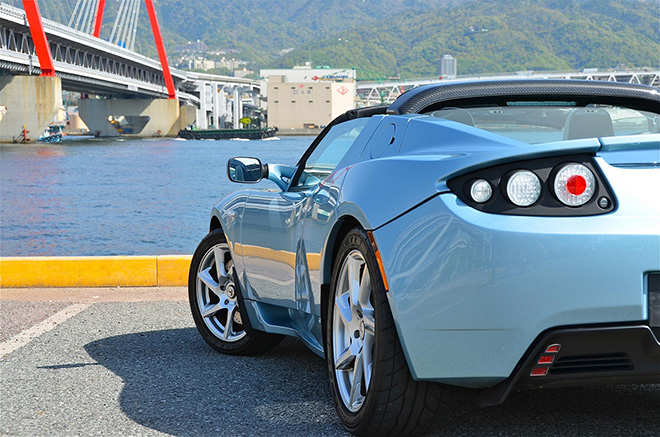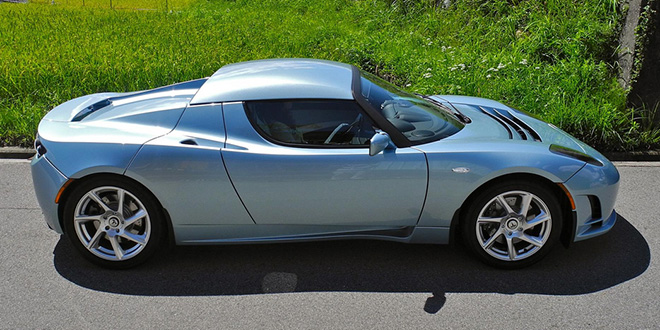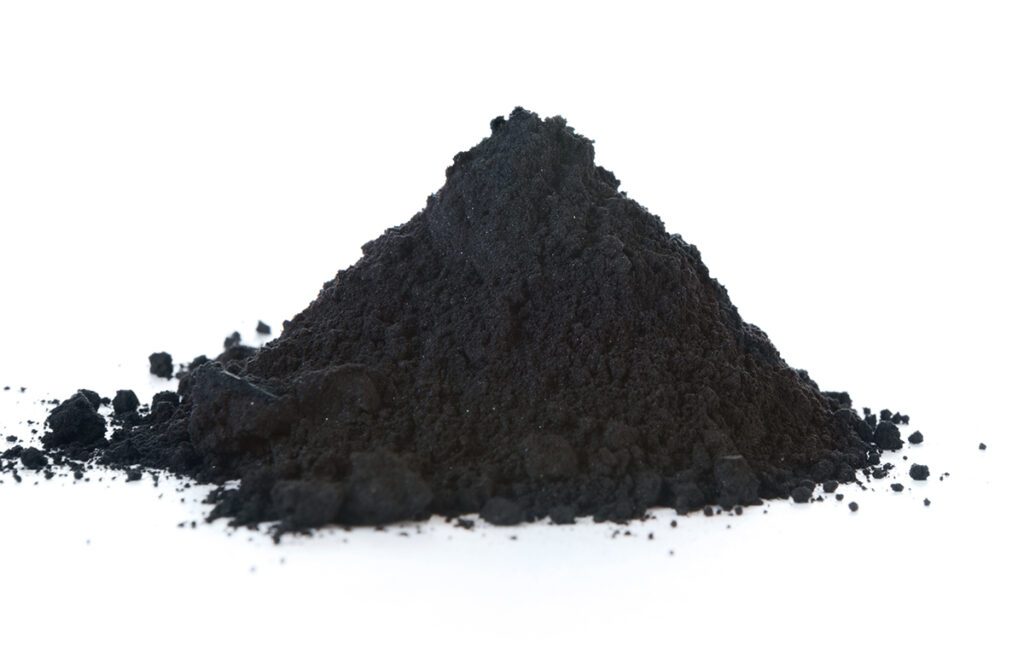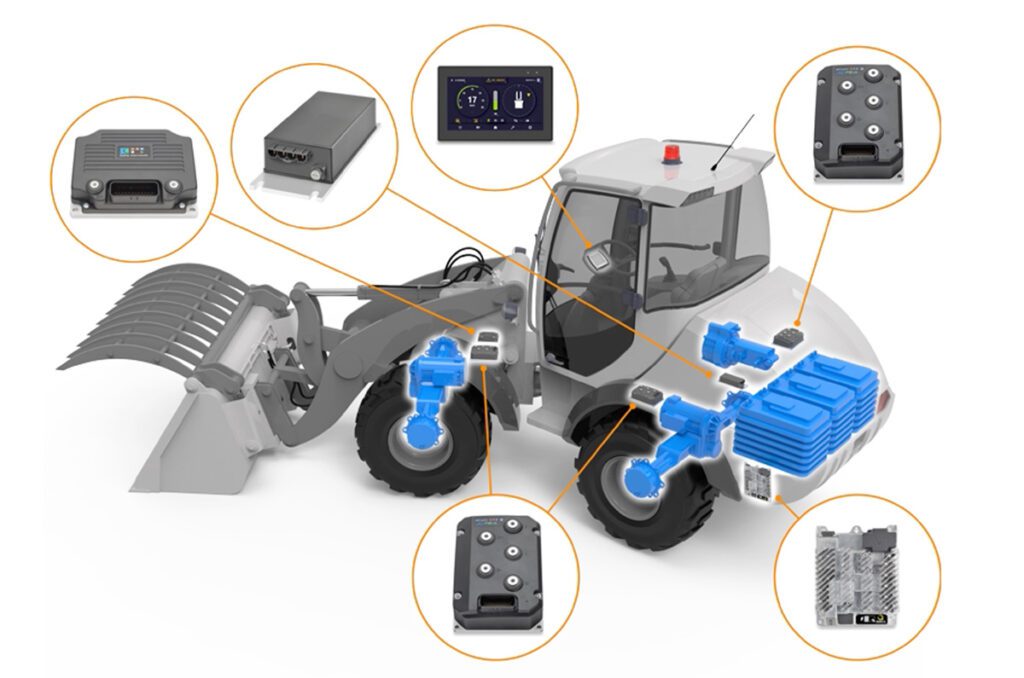So, it turns out that the much-anticipated Roadster news is not just a better battery, but a package of range-enhancing improvements dubbed Roadster 3.0. Tesla announced the day after Christmas that it will apply several lessons learned from producing Model S to the Roadster.
Noting that cell technology has improved substantially since the Roadster battery went into production in 2008, Tesla says, “We have identified a new cell that has 31% more energy than the original Roadster cell. Using this new cell we have created a battery pack that delivers roughly 70 kWh in the same package as the original battery.”
The Roadster’s aerodynamics will also get a boost. “Using modern computational methods we expect to make a 15% improvement, dropping the total drag coefficient down to 0.31 with a retrofit aero kit.”
RELATED: Plug In America research shows Tesla Roadster battery longevity exceeds projections
Improved wheels and tires round out the package. “New tires that we will use on the Roadster 3.0 have a rolling resistance coefficient of roughly 8.9 kg/ton, about a 20% improvement. We are also making improvements in the wheel bearings and residual brake drag that further reduce overall rolling resistance of the car.”

Combining all of these enhancements, Tesla expects to achieve “a predicted 40-50% improvement on range between the original Roadster and Roadster 3.0. There is a set of speeds and driving conditions where we can confidently drive the Roadster 3.0 over 400 miles. We will be demonstrating this in the real world during a non-stop drive from San Francisco to Los Angeles in the early weeks of 2015.”
Tesla’s announcement refers to the Roadster 3.0 package as a “prototype,” and is couched in the future tense. It offers no hint of when the upgrade will be available, or how much it will cost.
The Model S recently received its own stocking full of Christmas goodies, but just in case some are greedy for even more, Elon Musk tweeted: “A battery pack upgrade is not coming soon for the Model S, but it obviously *will* happen long-term.”




















































































